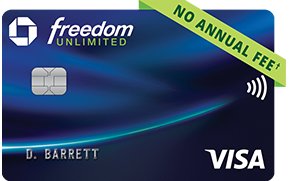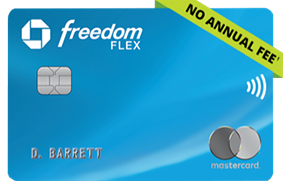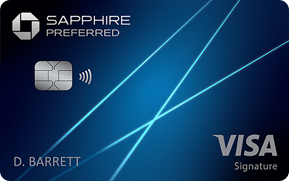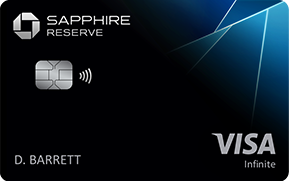What if you could travel for free? Fly to an exotic location halfway across the world without spending a dollar? Or stay in a luxurious overwater bungalow without making a dent in your bank account? Sounds too good to be true, right? Well, you can get pretty close to making this a reality if you have the best travel credit cards!
But you say, “Now hold on a minute! How is it traveling for free if I have to use credit cards? That doesn’t seem very wise from a financial perspective…”
And you would be totally right. We aren’t saying you should rack up an insane amount of credit card debt to go on vacation. But if you have the right cards, you can earn points on the things that you already spend money on (the key word is “already”). By maximizing your point-earning potential on things like groceries, gas and bills, you can convert those points into valuable airline miles or hotel stays if you have the right credit cards.

But before we share what we believe are the only 3 cards you need to get started, we just want to reinforce again: please be responsible with your credit card usage! Traveling for free using points doesn’t really matter if you are building up credit card debt and have to pay obscene amounts of interest. You should only use this strategy to travel for free if you are able to pay off your card balances in FULL every month. Again, this shouldn’t be an excuse to increase your spending but to cover your regular expenses.
CHASE ULTIMATE REWARDS
So if you’re ready to get started in the world of earning points through responsible spending, the 3 cards we recommend all have the ability to earn Chase Ultimate Rewards points. These are considered some of the most versatile and valuable in the points world.
Sure, you can use UR points to earn cash back, redeem gift cards or shop online at retailers like Amazon. You can even book travel through the Ultimate Rewards portal where points have slightly more value. But where these rewards truly shine is through 1:1 point transfers with travel partners.

At the time of writing, Ultimate Rewards points can be transferred to the following airline partner programs:
- Aer Lingus
- British Airways
- Emirates
- Flying Blue
- Iberia
- JetBlue
- Singapore Airlines
- Southwest
- United
- Virgin Atlantic
There are also a few hotel partner programs available as well:
- Hyatt
- IHG
- Marriott
As you can see, there is a world of possibilities to convert your UR points to valuable flights and hotel stays. And when you bring airline alliances into the picture, your points will have even more redemption options. The following cards all earn at least 1 point per $1 spent. But if you use the right card for certain purchases, you will earn points even faster through bonus categories. Read on to find out how you can use the following 3 cards to max out your point-earning potential and start crossing off destinations on your bucket list!
CHASE FREEDOM UNLIMITED CARD

Image courtesy of Chase.
The first credit card we recommend is the Chase Freedom Unlimited. This is probably the card we use the most for our everyday spending since you earn a minimum of 1.5 points per $1. You can also earn additional points by:
- 5% on travel purchased through the Chase Ultimate Rewards portal
- 3% on dining at restaurants, including takeout and eligible delivery services
- 3% on drugstore purchases
With no annual fee, the Freedom Unlimited is a must-have in your credit card arsenal.
CHASE FREEDOM FLEX CARD
The Freedom Flex card is the perfect companion to the Freedom Unlimited. The 2 main differences are that you can earn 5% back on bonus categories that rotate each quarter and that non-bonus category spending only earns 1% (vs. 1.5% with the Unlimited). This card was formally known as the Chase Freedom, but it works the same way.

Image courtesy of Chase.
Each quarter, you will activate the bonus categories. The two categories we look most forward to are grocery stores and gas stations. Other bonus categories have included wholesale clubs, streaming services, home improvement stores, cable and internet services, and more.
Obviously, to maximize your points, you want to make sure to use the right card during the right quarter! Consider putting a reminder for each quarter on your phone or in your wallet for quick reference. The other bonus categories are the same as the Freedom Unlimited:
- 5% on travel purchased through the Chase Ultimate Rewards portal
- 3% on dining at restaurants, including takeout and eligible delivery services
- 3% on drugstore purchases
Similar to the Freedom Unlimited, there is no annual fee for this card. So again, there’s really no reason not to have this card.
CHASE SAPPHIRE PREFERRED CARD

Image courtesy of Chase.
The last card we recommend to round out the Chase Ultimate Rewards trifecta is the Sapphire Preferred. This is the most expensive card to have of the three, since it comes with a $95 annual fee. However, the fee comes with some benefits.
This is the card that will allow you to transfer your UR points at a 1:1 ratio with partner programs. You can first transfer the points you’ve earned through the Freedom cards to the Sapphire account for free. Once the points are in your Sapphire account, then you can transfer to the partner program of your choice.
Other benefits of the Sapphire Preferred is there’s no foreign transaction fee if you use the card in another country. There are also a plethora of travel benefits, including trip cancellation / interruption insurance, auto rental collision damage waiver, baggage delay insurance, trip delay insurance and travel and emergency assistance services.
Bonus categories with this card include:
- 5% on travel purchased through the Chase Ultimate Rewards portal
- 2% on other travel purchases
- 3% on dining at restaurants, including takeout and eligible delivery services
- 3% on online grocery purchases (with some exceptions like Target and Walmart) and select streaming services
- 1% on all other purchases
OTHER CARDS TO CONSIDER
While we believe the 3 cards above are the best to start with, especially for those starting out in the points world, there are numerous other options to consider as you become a more experienced and seasoned traveler.
If you are loyal to a particular hotel chain or airline, you may want to check out a co-branded card. These cards typically boost your points earning potential with their respective hotel or airline. They may also offer other perks like free checked bags, priority boarding, instant status, free room upgrades and more.

Image courtesy of Chase.
For the most serious of travelers, Chase also offers the Sapphire Reserve card, which basically takes the Sapphire Preferred benefits and kicks them up a notch. It does come with a hefty $550 annual fee. It is somewhat offset by a $300 annual travel credit and a Global Entry or TSA PreCheck fee credit. You also get complimentary airport lounge access and a few other premium travel perks.
LET'S START EARNING POINTS!
Whichever cards you end up getting, be sure to take advantage of any new cardmember bonuses. Typically, this involves spending a pre-determined minimum amount in a set number of months. Again, this isn’t an excuse to increase your spending, but to funnel all your regular expenses through that card to hit the minimum. These bonuses can be very valuable and give you a serious chunk of points to use towards future travel.
Do you have a favorite travel credit card? Let us know in the comments below and be sure to check out our other travel tips!

This is awesome! And so smart if you’re already in a good groove with your budget and smart with money. A really terrific perk for military members is that most cards (including Chase Sapphire reserve!!) WAIVE the annual fees!!
Thanks Bri! And yes, that is a great perk, thank you for sharing!